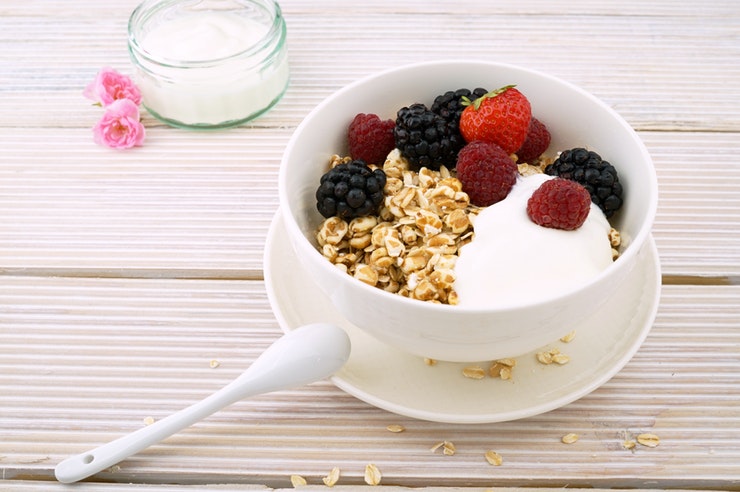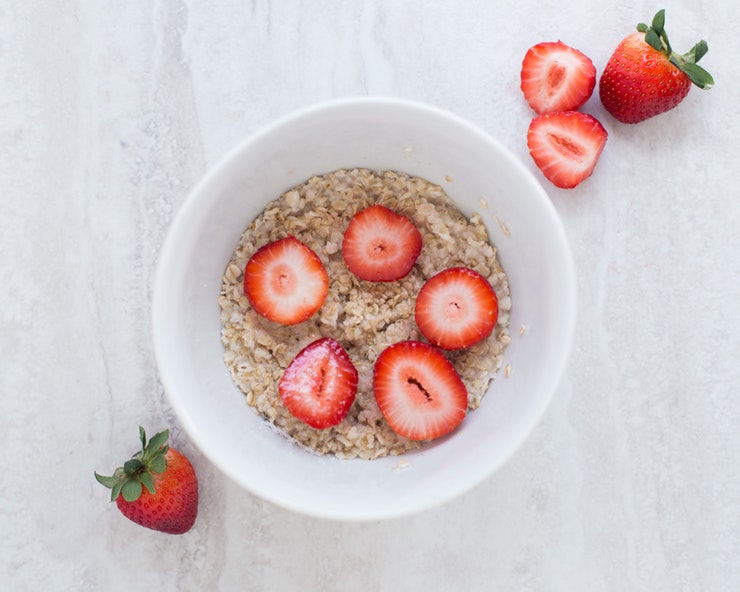
Sponsored Links
Oatmeal is made of ground oats, or “groats” as many have coined them. These groats come in many forms from milled to steel cut or rolled. You can have them thick (old-fashioned) or thin (instant) depending on the texture you’re after or the amount of time you have to prepare them.
Oatmeal is also chock full of fiber, which, as we know, will do great and wonderful things to your body including all of the things mentioned below.
1. You will be “regular”
Oatmeal, no matter the form, is nearly pure fiber. Fiber is something that is extremely difficult to digest without a lot of help from fluids inside your body. So, the oats serve as as sponge, soaking up water and other fluids as it moves with ease through your digestive system and right out of you. This keep you having regular bowel movements so that you’re not backed up and feeling all stuffed up and gross.

2. You will be full
Just as a sponge soaks up moisture, it also swells to at least double its original size when doing so. Oatmeal essentially does the same thing in your body. When eaten, it immediately starts to expand and fill up space inside your stomach, leaving less room for more food. And when that happens, it makes you full and less likely to eat unnecessary foods.

3. You could lose weight
Due to the fact that you are full and less likely to eat in-between-meal snacks, you will not be packing on the extra pounds and may even lose weight. In fact there is an actual diet coined, “The Benjamin Franklin Diet” that claims that people who replaced their usual breakfast with a bowl of oatmeal and walk for fifteen to thirty minutes per day will lose nearly one pound of body fat per week without changing anything else in their diet.
If you don’t believe it, just try it.
Sponsored Links

4.You will reduce your risk of heart disease
Oatmeal has been found to reduce low density lipoprotein cholesterol level, aka, the “bad” cholesterol which has been linked to heart disease. Whole oats are high in polyphenols, antioxidants, and in particular a group of antioxidants called avenanthramides, which are almost solely found i
n oats. These avenanthramides have been linked lowering blood pressure levels by increasing the production of nitric oxide that helps dilate blood vessels, improving blood flow.
To put it simply: eat oatmeal and reduce your risk of heart disease. It says it on the box, and it is true, true, true.

Sponsored Links
5. You will get loaded with nutrients
Oats are loaded with essential vitamins, minerals and antioxidants. In just one serving (½ cup) of dry oats, you will get:
- Manganese:191% of the RDI
- Phosphorus: 41% of the RDI
- Magnesium: 34% of the RDI
- Copper: 24% of the RDI
- Iron: 20% of the RDI
- Zinc: 20% of the RDI
- Folate: 11% of the RDI
- Vitamin B1 (thiamin): 39% of the RDI
- Vitamin B5 (pantothenic acid): 10% of the RDI
- Trace amounts of calcium, potassium, vitamin B6 (pyridoxine) and vitamin B3 (niacin)
Bonus: 51 grams of carbs, 13 grams of protein, 5 grams of fat and 8 grams of fiber, and 303 calories.
So, what are you waiting for? Eat your oatmeal every day, and see the benefits for yourself.
